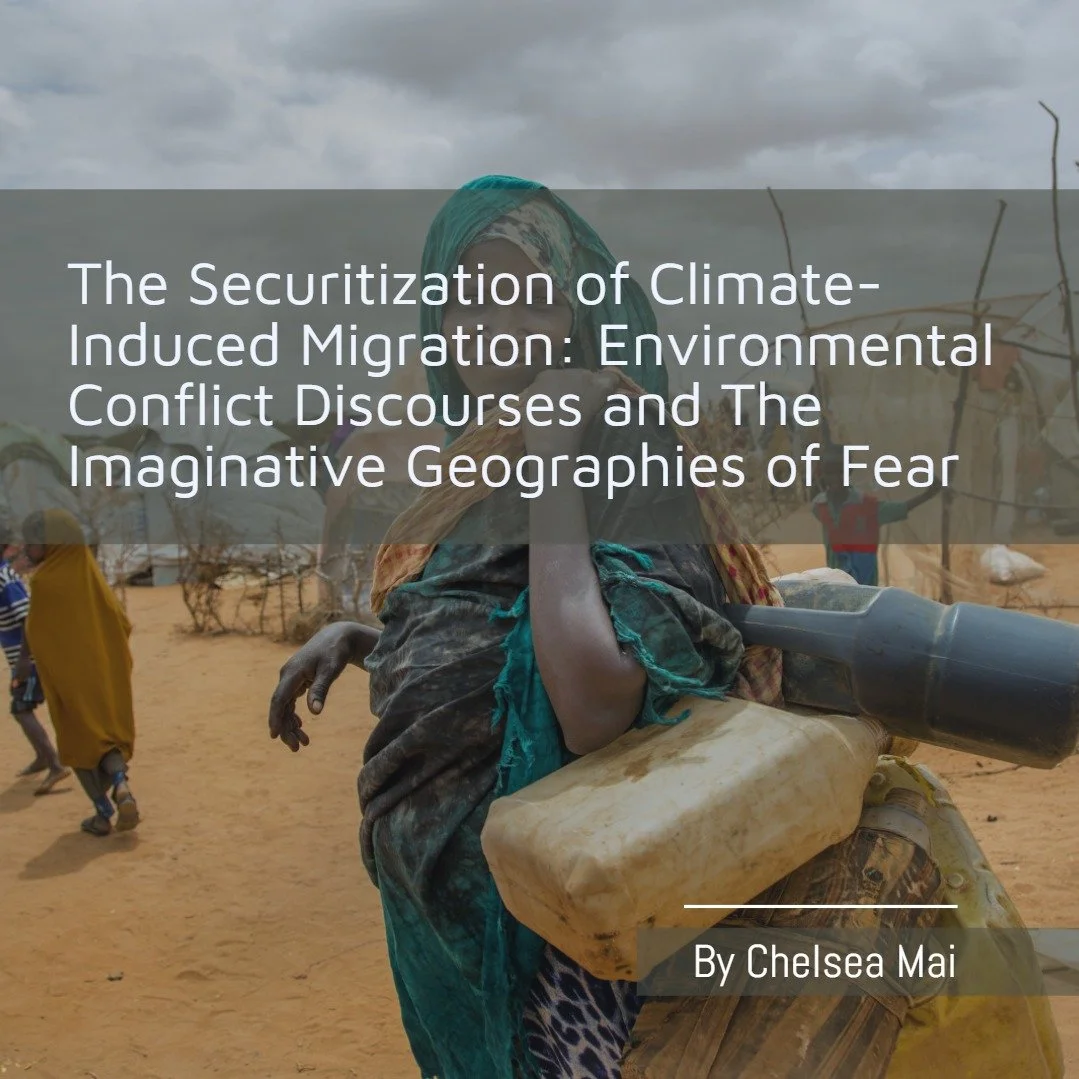The exploitation of the information space of targeted countries represents an advantageous tactic for the Kremlin that levels the battlefield below the threshold of an open confrontation. The means of Russian information warfare are carefully crafted narratives used as tools to destabilize the information space of targeted countries. The narratives created by Russia are either entirely false or diluted truths void of context. This article will argue that the narratives created and disseminated during Russian disinformation campaigns do not emerge independently of existing meta-narratives. The narratives used in disinformation campaigns will be viewed as tools used on an ad hoc basis connected to one of the Kremlin’s central meta-narratives.
The Securitization of Climate Induced Migration: Environmental Conflict Discourses and The Imaginative Geographies of Fear
The nexus between Climate Change and security has obtained much relevance in the 21st century. Climate Change is perceived to be a source of insecurity that has the potential to exacerbate existing security threats. Climate Change is thus viewed as a ‘threat multiplier’ and a source that can induce violent conflicts when viewed through the lens of Environmental Conflict Discourses. Environmental Conflict Discourses (ECD) link traditional security concerns to the environment. ECD prioritizes the security of the state over the human populations engaging in conflict and also identifies migration as a trend that can aggravate environmentally induced conflict. ECD asserts that groups within society will likely engage in conflict once natural resources deplete due to environmental degradation. Resource scarcity and the conflict that ensues because of climate induced environmental degradation may force people to move across borders and become potential ‘Climate Refugees’. ECDs however, lack widespread empirical evidence to support the claim of a direct causal link between Climate Change, conflict and migration. It can be argued that ECDs have played a more substantial role in the imaginative geographies of fear about climate refugees which have informed policies to securitize Climate Induced Migration (CIM).



